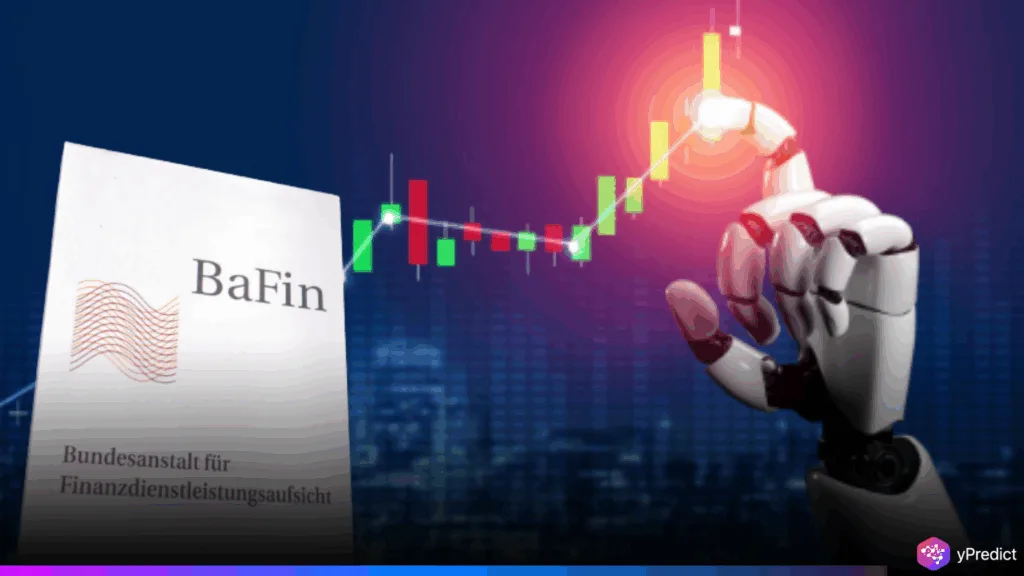
Germany’s financial regulator BaFin is now using artificial intelligence to detect market abuse and suspicious trading behaviors. The AI system, introduced last year, enhances the accuracy of its alert and market analysis tools. President Mark Branson announced that AI has significantly raised the chances of catching illegal trading activity. He emphasized that penalties in Germany for market abuse are severe and enforcement is growing stronger. This shift comes as BaFin seeks to rebuild credibility after failing to uncover the Wirecard fraud. The integration of AI is part of a broader strategy to modernize and strengthen financial oversight across Germany.
How BaFin’s AI System Enhances Surveillance?
Its new AI tools are helping analysts detect complex trading patterns that traditional systems might miss. They scan market activity all the time to identify anything unusual that happens. They review vast amounts of data to detect anything unusual that could show insider trading or market manipulation. Once the AI has flagged suspicious activity, investigators get the alerts to examine and make sure the process is accurate and quick. President Branson said this hybrid approach, AI plus human analysis, works better than older methods. By automating the first layer of review, staff can focus on real threats. This also helps reduce false positives, making the system faster and more reliable.
The AI system learns continuously, becoming smarter as more trading data flows through it. The technology adapts to evolving market tactics, allowing regulators to stay ahead of sophisticated fraud schemes. Since the Wirecard scandal, BaFin has invested heavily in tools and training to avoid another major failure. AI is now central to that reform strategy. The system is already supporting efforts beyond market abuse, such as anti-money laundering and financial crime detection. AI integration marks a turning point in Europe’s regulatory evolution, reflecting a global trend of tech-driven oversight to ensure financial integrity.
Why AI Is Reshaping Financial Oversight?
Artificial intelligence is changing how financial regulators enforce rules and protect markets. For BaFin, AI has brought speed, precision, and better decision-making. Unlike older systems, today’s AI tools analyze millions of transactions in real time. They detect subtle behavior changes that may indicate fraud or manipulation. These improvements make it harder for bad actors to hide their tracks. As AI tools improve, they adapt to new threats and learn from past cases. This gives BaFin a proactive edge instead of always reacting to scandals. Germany’s move reflects a global shift in how countries regulate finance in the digital age.
Regulators in the UK, US, and Singapore are also investing in AI to monitor markets. AI makes it possible to catch violations earlier, often before serious damage occurs. It also helps reduce regulatory blind spots by using pattern recognition and data mining. BaFin now leads European regulators in using AI to close enforcement gaps. AI also offers cost savings by reducing manual audits and accelerating investigations. As trust in financial institutions remains critical, AI ensures that watchdogs can act fast and fairly. The success of BaFin’s AI rollout will influence future investments in global financial oversight systems and policy development.
Looking Ahead, The Future of AI in Regulation
BaFin is aiming to apply AI technology to other areas apart from trading, such as crypto, fraud, and money laundering. By using these advanced tools, regulators will be able to respond well to ongoing changes in digital asset markets and face new kinds of financial threats. Regulating AI will need increased transparency, monitoring, and proper use of it. It requires managing efficiency and fairness to continue the public’s belief in the justice system. Properly handled AI could reduce risks, promote clarity, and ensure more accurate reporting in finance. Whatever advancements appear in finance, AI will likely stay a main tool for regulators worldwide.






